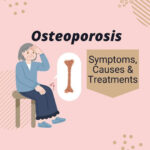Seniors have unique nutritional needs that require special attention. As we age, our bodies undergo various changes, and vitamins play a vital role in supporting energy levels, immune function, bone health, cognitive function, and more. With advancements in nutritional science and research, senior multivitamins have evolved to cater to these specific requirements effectively.

Pros And Cons of Multivitamins for Seniors
Potential Benefits of Taking Multivitamins as a Senior
Here are some potential benefits seniors can experience by incorporating multivitamins into their daily routine:
- Filling Nutrient Gaps: As we grow older, it can become challenging to meet our nutritional needs through diet alone. Many seniors may have reduced appetites or difficulty chewing certain foods, leading to nutrient deficiencies. Multivitamins formulated specifically for seniors can help fill these nutrient gaps and provide essential vitamins and minerals necessary for optimal health.
- Supporting Bone Health: Osteoporosis is a common concern among older adults due to the natural loss of bone density with age. Multivitamins containing calcium, vitamin D, and vitamin K can help support bone health and reduce the risk of fractures or osteoporosis-related complications.
- Boosting Immune Function: As our immune system weakens with age, it becomes more susceptible to infections and illnesses. Certain vitamins like vitamin C and zinc found in multivitamins can boost immune function, helping seniors stay healthy and ward off common illnesses.
- Enhancing Cognitive Function: Cognitive decline is another common issue faced by many seniors. Some studies suggest that certain vitamins like B-complex vitamins (B6, B12, folate) may help improve cognitive function and reduce the risk of conditions like dementia or Alzheimer’s disease.
- Promoting Heart Health: Heart disease is a leading cause of mortality among older adults. Multivitamins containing antioxidants such as vitamin E or coenzyme Q10 may offer cardiovascular benefits by reducing oxidative stress and inflammation in the body.
While these potential benefits are promising, it’s important to note that multivitamins are not a magical solution and should be used in conjunction with a healthy lifestyle and balanced diet.
Drawbacks or Considerations When Using Multivitamins
While multivitamins can offer potential benefits, there are also some drawbacks and considerations that seniors should keep in mind:
- Risk of interference with medications: Some vitamins can impact the effectiveness of certain medications. For example vitamin K and blood thinners, calcium and antibiotics, iron and thyroid medication or vitamin C and statin medications. It is crucial to follow the recommended dosage guidelines and consult with a healthcare professional to avoid any potential risks.
- Risk of Overdose: Taking excessive amounts of certain vitamins or minerals can lead to adverse effects. Seniors may already be taking specific medications or have underlying health conditions that can interact negatively with high-dose supplements.
- Expense: High-quality multivitamins tailored for seniors can sometimes be more expensive compared to standard multivitamin options. Affordability may become a concern for seniors on fixed incomes, especially if they require multiple supplements to meet their nutritional needs.
- Digestive Issues: Some individuals may experience digestive discomfort such as nausea, constipation, or upset stomach when taking multivitamins. This can vary depending on the formulation and individual sensitivities. Choosing a multivitamin specifically designed for easy digestion or opting for alternative forms like gummies or liquids might help alleviate these issues.
Which Vitamins Do Seniors Need & Why?
The Importance of Essential Vitamins for Seniors
Vitamin B12: Vital for Senior Health
One of the key vitamins that seniors should pay attention to is vitamin B12. This vitamin is essential for various bodily functions, including the production of red blood cells and DNA synthesis. As individuals age, their ability to absorb vitamin B12 from food decreases, making supplementation necessary for many seniors.
Vitamin B12 deficiency can lead to anemia, causing fatigue, weakness, and shortness of breath. Inadequate levels of vitamin B12 can affect cognitive function and contribute to memory loss or confusion in older adults. To maintain optimal health and prevent these issues, senior men and women should ensure they are getting enough vitamin B12 through supplements or fortified foods.
The Role of Vitamin B6 in Senior Well-being
Another essential vitamin for seniors is vitamin B6. Like vitamin B12, this water-soluble nutrient helps convert food into energy, supports brain development and function, regulates mood, and aids in immune system functioning.
Deficiencies in vitamin B6 can negatively impact senior health in several ways. Inadequate intake may lead to cognitive decline, depression or anxiety symptoms, weakened immune system response, or even an increased risk of heart disease. Incorporating sources rich in vitamin B6 such as poultry, fish, bananas, or fortified cereals into the diet can help ensure seniors receive the necessary amount of this crucial nutrient.
Calcium: Essential for Bone Health
Calcium is a mineral that plays a crucial role in maintaining strong and healthy bones, making it especially important for seniors. As individuals age, bone density naturally decreases, putting them at a higher risk of fractures and osteoporosis. Consuming adequate amounts of calcium can help slow down this process and reduce the likelihood of bone-related issues.
Senior women, in particular, need to pay attention to their calcium intake due to the increased risk of osteoporosis after menopause. It is recommended that women over 50 years old consume around 1,200 milligrams of calcium per day. Dairy products like milk, cheese, and yogurt are excellent sources of calcium. For those who are lactose intolerant or have dietary restrictions, alternatives such as fortified plant-based milks or leafy greens can provide the necessary calcium intake.
Vitamins For Eye Health
As seniors age, eye health becomes an area of concern due to the increased risk of age-related macular degeneration (AMD) and other vision problems. Certain vitamins play a vital role in maintaining good eye health and preventing these conditions from progressing.
Antioxidants such as vitamins C and E, as well as zinc and beta-carotene (a precursor to vitamin A), are known for their beneficial effects on eye health.
How To Choose Multivitamins For Elderly?
Key Factors to Consider
There are several key factors that you should consider. By understanding these factors, you can make an informed decision and select a supplement that meets the specific nutritional needs of elderly individuals.
- Determine Your Needs: Most multivitamins are designed to address specific health concerns like heart health, eye health, or bone health. Some multivitamins with higher components of glucosamine and chondroitin are made for those seeking joint support, others are more tailored for cognitive health and contain higher levels of vitamin E, B vitamins, and omega-3 fatty acids.
- Dosage: The dosage of multivitamins is an important consideration when selecting a supplement for seniors. As we age, our bodies may require different levels of vitamins and minerals. It’s essential to choose a multivitamin with appropriate dosages that align with the recommended daily allowances (RDAs) for older adults.
- Formulation: Another crucial factor is the formulation of the multivitamin. Look for a product specifically designed for seniors, as they often contain higher levels of certain nutrients that are important for aging bodies. For example, vitamin D and calcium are vital for bone health in older adults, so ensure these are included in the formulation.
- Quality Standards: Quality is paramount. Look for products that have been tested by reputable third-party organizations such as NSF International or ConsumerLab.com to ensure their safety and efficacy. Check if the manufacturer follows good manufacturing practices (GMP) to maintain quality standards during production.
Considering Individual Nutritional Needs
Every individual has unique nutritional needs based on factors such as overall health, diet preferences, and existing medical conditions. When choosing multivitamins for seniors, it’s crucial to consider these individual requirements:
- Specific Health Concerns: If an elderly person has specific health concerns like osteoporosis or heart disease, look for multivitamins that address those issues directly. Some supplements contain additional ingredients tailored towards supporting specific health conditions.
- Dietary Restrictions: Take into account any dietary restrictions or allergies when selecting a multivitamin. For example, if someone follows a vegetarian or vegan diet, they may prefer a multivitamin that does not contain animal-derived ingredients.
- Existing Medications: Certain medications can interact with vitamins and minerals, potentially affecting their absorption or effectiveness. It’s essential to consult with healthcare professionals to ensure there are no contraindications between the chosen multivitamin and any existing medications.
Consulting Healthcare Professionals
To make the best decision when choosing multivitamins for seniors, it is advisable to consult healthcare professionals or registered dieticians who specialize in senior nutrition. These experts can provide personalized guidance based on an individual’s specific needs and medical history.
- Healthcare Professionals: Schedule an appointment with a primary care physician or geriatrician to discuss the need for multivitamins and get recommendations tailored to your health condition. They will consider factors such as age, gender, overall health, and any underlying medical conditions.
- Registered Dieticians: Registered dieticians can help assess dietary habits and nutritional deficiencies in older adults. They can provide advice on how to incorporate a balanced diet along with multivitamins into daily routines for optimal health benefits.
By seeking professional advice, you can ensure that the multivitamin you choose is suitable for your individual needs while avoiding any potential risks or unnecessary supplementation.
Best Multivitamins for Seniors
What sets the best multivitamins for seniors apart
The top 10 multivitamins for seniors stand out from others on the market due to several factors:
- Tailored Nutrient Profile: These multivitamins are specifically formulated to meet the unique nutritional needs of seniors, taking into account age-related changes in metabolism and nutrient absorption.
- Comprehensive Blend of Nutrients: Each of these multivitamins provides a wide range of essential vitamins and minerals that are crucial for maintaining optimal health in older adults, such as antioxidants, micronutrients, and trace elements.
- Bioavailability: These supplements may incorporate forms of vitamins and minerals that are more easily absorbed by aging bodies. For example, they might use methylated forms of B vitamins or chelated minerals to enhance bioavailability.
- Joint and Bone Support: Seniors often face issues like osteoporosis and joint pain. High-quality multivitamins may include nutrients like calcium, vitamin D, magnesium, and vitamin K to support bone health and reduce the risk of fractures.
- Cognitive Health: Many seniors are concerned about cognitive decline. Multivitamins may contain antioxidants and nutrients like omega-3 fatty acids, vitamin E, and B vitamins to support brain function and memory.
- Heart Health: Cardiovascular health becomes increasingly important with age. Senior multivitamins may contain ingredients like coenzyme Q10, folic acid, and niacin to support heart function and reduce the risk of heart disease.
- No Harmful Additives: The best multivitamins for seniors should be free of unnecessary additives, artificial colors, and preservatives that can be harmful or cause allergies.
- Tailored to Specific Needs: Some seniors may have specific health conditions or dietary restrictions, such as diabetes or vegetarianism. Multivitamins may come in specialized formulations to accommodate these needs.
- Third-Party Testing: Reputable brands often subject their products to third-party testing to ensure quality, purity, and accurate labeling. Look for supplements with certifications from organizations like the US Pharmacopeia (USP) or NSF International.
Conclusion
In conclusion, choosing the best multivitamins for seniors requires careful consideration of their specific nutritional needs. To ensure optimal health in their golden years, seniors should focus on obtaining key vitamins like vitamin D, B12, and calcium. Factors such as dosage form (e.g., tablets vs. gummies), added nutrients (e.g., omega-3 fatty acids), and certifications (e.g., USP verification) should be considered when choosing multivitamins for the elderly. It is advisable to consult a healthcare professional before starting any new supplement regimen.
FAQs
Are multivitamins safe for seniors?
Multivitamins are generally safe for seniors when taken according to recommended dosages. However, it is important to consider individual health conditions and medications that may interact with certain vitamins or minerals. Consulting a healthcare professional is advised before starting any new supplement.
Can I take multiple supplements instead of a multivitamin?
While taking multiple individual supplements may seem like an option, it can increase the risk of exceeding safe dosages or missing out on essential nutrients. A well-formulated multivitamin designed specifically for seniors can provide a balanced combination of necessary vitamins and minerals.
How long does it take to see results from taking multivitamins?
The time it takes to see results from taking multivitamins varies depending on factors such as overall health status, diet, and lifestyle. Consistent use of multivitamins alongside a healthy lifestyle can contribute to long-term health benefits.
Can multivitamins replace a healthy diet for seniors?
Multivitamins should not be seen as a substitute for a healthy diet. While they can help bridge nutritional gaps, it is essential for seniors to prioritize consuming a varied and balanced diet consisting of whole foods rich in vitamins, minerals, and other nutrients.
Are there any side effects of taking multivitamins?
When taken as directed, most multivitamins do not cause significant side effects. However, some individuals may experience mild digestive discomfort or allergic reactions to certain ingredients. If any adverse reactions occur, it is recommended to discontinue use and consult a healthcare professional.
References
https://www.nia.nih.gov/health/dietary-supplements-older-adults
- How To Improve Gut Microbiome – 26 May 2024
- Chemo neuropathy treatment: What to do? – 19 May 2024
- How to Prevent Osteoporosis: Effective Strategies & Simple Steps – 28 December 2023





